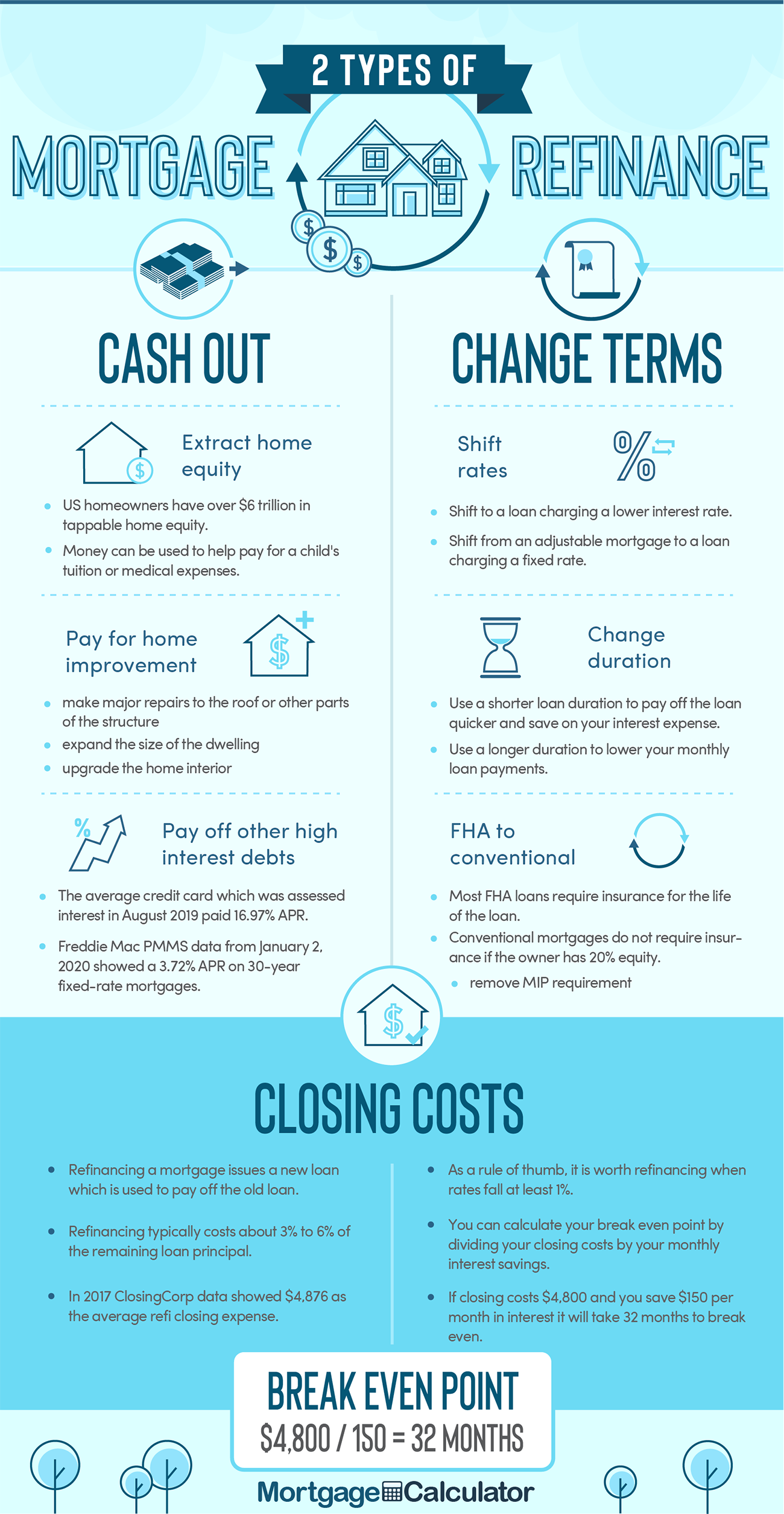Can I Refinance My Car if It's Paid Off

Unsure if You Should Refinance? Let Us Help Calculate Your Options
Should You Refinance? Here Are Your Results
| Your Savings | Amount |
|---|---|
| Loan Balance Difference in 7 Years, Less Income Tax Shift: | $45,226.67 |
| Less Additional Monthly Payments: | -$9,043.81 |
| Less Total Closing Costs: | -$3,526.36 |
| Total Refinancing Benefit Over Next 7 Years Loan Balance Savings + Monetary Savings - Total Closing Costs: | $32,656.50 |
Detailed Calculation Breakdowns
The following tables offer a detailed breakdown of the calculated results in the above table.
| Balance & Closing | | |
|---|---|---|
| Balance at Refinance: | $232,635.89 | $232,635.89 |
| Cost of Purchasing 1.000 Discount Point: | $2,326.36 | |
| Other Closing Costs: | $1,200.00 | |
| Total Closing Costs | $3,526.36 |
| Monthly Payments | Before Refinancing | After Refinancing |
|---|---|---|
| Monthly Payment: | $1,498.88 | $1,606.54 |
| Payment Savings Per Month: | $-107.66 |
| 7 Yr Totals | Before Refinancing | After Refinancing |
|---|---|---|
| Total Monthly Payments Over 7 Years: | $125,905.61 | $134,949.42 |
| Monthly Payment Savings: | $-9,043.81 | |
| Total Interests Paid: | $90,968.32 | $39,278.53 |
| Interest Savings: | $51,689.79 |
| Income Tax Info | Before Refinancing | After Refinancing |
|---|---|---|
| Tax Savings: | $27,290.50 | $11,783.56 |
| Tax Saving Losses: | $15,506.94 |

Are You Itemizing Your Income Tax Deductions?
In 2021 the standard deduction for single filers & married filing separately is $12,550. Head of households can deduct $18,800 whie married joint filers can deduct $25,100. With the higher deductions initially introduced by the 2017 TCJA few filers itemize income tax deductions. If you do not plan on itemizing set your marginal tax rate to zero to remove it's impact on your calculation.
| Final Loan Balance | Before Refinancing | After Refinancing |
|---|---|---|
| Refinance amount: | $232,635.89 | |
| Loan Balance at Sale in 7 Years: | $197,698.60 | $136,964.99 |
| Remaining Loan Balance Difference at Sale: | $60,733.61 | |
Deciding whether or not you should refinance your home mortgage depends upon several factors. It also depends upon whether you are looking to simply reduce your monthly payment or if you are hoping to save money in the long run.
To understand better, let's look at an example. If your original 30 years loan was for $250000.00 with a 3.250% interest, and you have already paid on it for 60 months, it will increase your monthly payment if you refinance for a new 15 years period but with a 3.000% interest rate.
If your Federal tax rate is 25.000% and your state tax rate is 5.000%, you were probably paying $1,498.88 per month toward your home. When you refinance at the new rate, you will pay $1,606.54 instead, but your tax benefits will also be affected by this change.
The bottom line is:
- you will lose $15,506.94 on tax savings (lesser tax benefit is worse)
- your remaining balance will be $60,733.61 less because you will pay more toward your mortgage principal (lesser principal is better)
- closing your refinancing process will cost you $3,526.36
Summing up these numbers, we can figure out your total refinancing BENEFIT, which will be $32,656.50.
Refinance Into a 15-yr Loan & Lock-in Low Rates Today
How much money could you save? Compare lenders serving Los Angeles to find the best loan to fit your needs & lock in low rates today!
By default rates for a 15-yr fixed-rate refinance loan for $250,000.00 are displayed in the table below. Filters enable you to change the loan amount, duration, or loan type.
Factors to Consider When Refinancing
 When you buy your home, it may not always be under the perfect circumstances. Your credit may not have been good enough to qualify you for the best interest rates or you may have took out a loan using adjustable rates. You may not have had the down payment you wanted. You may taken on more than you could really afford in your enthusiasm to own your first home.
When you buy your home, it may not always be under the perfect circumstances. Your credit may not have been good enough to qualify you for the best interest rates or you may have took out a loan using adjustable rates. You may not have had the down payment you wanted. You may taken on more than you could really afford in your enthusiasm to own your first home.
Refinancing can be the answer for many homeowners trying to balance their budget and meet their financial goals. In some cases, it can save you hundreds of dollars a month. However, it is not always the most appropriate solution. It's important to understand the pros and cons to ensure that you make the right decision for your personal circumstances.
If you only need a small sum of money or rates have risen it might make sense to keep your current mortgage and tap your equity using either a home equity loan or a revolving home equity line of credit instead.
Signs It's Time to Refinance

Falling Interest Rates
One of the best signs that it's a good time is that interest rates have dropped or that you now qualify for lower interest rates based on your improved credit score or credit history. A two-point interest rate deduction on a $200,000 home could save you tens of thousands of Dollars over the life of a 30-year, fixed-rate loan. Typically, a full point or two is necessary to make refinancing worth your while. The savings from a half-point or less may take years to offset expenses, depending on the terms of your loan.
Shift From Adjustable to Fixed Rates
Another good reason to refi is if you want to get out of an adjustable-rate mortgage or to eliminate a second mortgage loan, or a piggyback loan. When your ARM is going to reset to a higher interest rate, you may be able to shift into a fixed-rate loan with a lower interest rate. Of course, your credit history will need to have improved significantly from when you were approved for the original loan. You can also refi to consolidate two loans into one single loan with one monthly payment.
Shift Into a Conventional Loan
FHA loans are easier to qualify for than conventional loans, allowing both low down payments and lower credit scores. FHA loans typically charge mortgage insurance premium (MIP) for the life of the loan. By shifting over to a conventional loan a homeowner can drop the insurance requirement so long as they have at least 20% equity in their home.
Pay Off Your Loan Faster
An often overlooked reason to refi is to pay off your home more quickly, perhaps in preparation for retirement. Instead of paying off your mortgage for another 25 years, you can pay it off in 15. Though you may have to pay more per month, you may end up spending far less over the years as a result of both a lower interest rate and a more rapid amortization repayment schedule. Every dollar of equity you build this year is a dollar that is not costing you interest for every remaining year of your life.
Extract Home Equity
Economic uncertainty around the COVID-19 crisis has left many house rich & cash poor Americans laid off or furlowed from work considering tapping their home equity.
Historically, a less-popular option is the "cash out" refinance, which can be used to help pay down other higher interest debts. The cash out option involves taking out a loan for more than the current remaining balance — assuming you have built up some home equity — and taking out the difference from the amount you still owe on your mortgage in cash. You can use that money to pay down other debts, fund business investment, or work on home improvement projects. If you tap most of your home equity you might have to pay a higher interest rate than a borrower who gives the lender a significant equity cushion.
In recent years as mortgage rates have fallen the spread between mortgage rates and HELOC rates has widened, making many homeowners who need a bit of cash durng a crunch consider a cash-out refinance a better option than a HELOC or a home equity loan.
The 2017 Tax Cuts and Jobs Act increased the standard deduction for individuals or married filing individually to $12,000, head of household to $18,000 & married filing jointly to $24,000. Those numbers are up significantly from $6,300, $9,300 and $12,600 in 2016. In 2021 standard deductions increased further to $12,550, $18,800 and $25,100 respectively. Previously around 47 million Americans itemized deductions, though under the new laws it is expected over 90% of taxpayers will simply use standard deductions. If you are unlikely to itemize your deductions, you can set your state & federal tax rates at zero in our refinancing calculator to remove the impact of taxes on the calculator's output.
It is also worth noting that if you increase your mortgage debt on a refinance then generally interest paid on that incremental mortgage debt typically is not tax deductible unless the money is used to expand or substantially improve the dwelling. Talk to your financial advisor if you are uncertain if your project qualifies. Be sure to save any related receipts in case you are audited.
Comparing Refinance Types
The following graphic helps homeowners better understand the refinancing landscape.

If you want to calculate your breakeven date, we offer an easy-to-use mortgage refinance breakeven calculator.
Signs It's Best to Wait
Refinancing won't always save you money. It typically involves the same closing costs as your original loan, including attorney fees, appraisals and title insurance — though some fees may be waved as banks compete for your business. To determine if it is the best choice, you should compare your monthly savings to the costs you will have to put in and find out how long it will take you to break even. If you don't plan to live in your house that long — and preferably longer, refinancing isn't worth it. You may also face additional costs if your original loan has an early prepayment penalty.
The above calculator can help you quickly break down your costs and benefits to better understand if refinancing is the right choice for you. The calculator takes into account your interest rate, length of the loan, the amount of time you plan to stay in your home, origination and closing costs and taxes so you can get a complete financial analysis.
Homeowners May Want to Refinance While Rates Are Low
The Federal Reserve has hinted they are likely to taper their bond buying program later this year. Lock in today's low rates and save on your loan.
Are you paying too much for your mortgage?
Find Out What You Qualify For
Check your refinance options with a trusted local lender.
Answer a few questions below and connect with a lender who can help you refinance and save today!
Can I Refinance My Car if It's Paid Off
Source: https://www.mortgagecalculator.org/calculators/should-i-refinance.php
I surely acquiring more difficulties from each surprisingly more little bit of it, by the way thank for article. Home Buyer
ReplyDelete